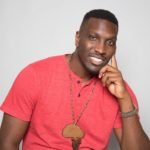Walking from Chidley Hall to the “cafe” on Chicken Day I spoke to everyone at North Carolina Central University. From Brooklyn to Chinquapin, North Carolina, I was shocked by my classmates’ different expressions of their Blackness. Years later, I continued my family legacy and became a Rattler on the Highest of Seven Hills. The music’s bass would shake the Set as the DJ shouted, “Sak Passe,” followed by the Haitian congregational response, “Map Boule,” on Friday at Florida Agricultural and Mechanical University. My time at NCCU and FAMU helped me understand the performance of Blackness had no script, hue or social limitation. We were trained for greatness with intentional exposure to the nuances of the Black experience. I understood that one bad relationship did not indict all Black folks. Equally, one great relationship did not symbolize all Black folks.
Before I dive into this piece, I need to know, Can I keep it real?
CHECK OUT: With A Shortage of Black Doctors, Who Will Care for Black People?
We do not have a secret membership card or esoteric handshake for Blackness. We certainly do not have one in the hospital. Some patients really don’t respect their Black doctors. And some Black doctors really disrespect their patients. A more heightened set of rules apply within the encounter between a Black doctor and Black patient.
Patients probably expect the doctor to perform “my kind” of Blackness while maintaining the professional allure of being a physician. They cannot come off too real or too sadity. Negative encounters with Black doctors can shake a patient to their core. Some people need that tough love that can only be administered by someone who looks like them, while some folks expect a more endearing discussion. When either approach is applied incorrectly, this necessary relationship can break down.
 Minority patients enter the hospital or clinic with a set of unbalanced assumptions. Research and subsequent training brand Black people as more prone to sickness and poor health behaviors. Patients commonly report mistrust and impaired communication with non-Black healthcare providers. Black patients feel doctors of the same race understand their health concerns better and medical errors are least likely to be reported in intra-racial settings.
Minority patients enter the hospital or clinic with a set of unbalanced assumptions. Research and subsequent training brand Black people as more prone to sickness and poor health behaviors. Patients commonly report mistrust and impaired communication with non-Black healthcare providers. Black patients feel doctors of the same race understand their health concerns better and medical errors are least likely to be reported in intra-racial settings.
The medical discipline forces Black doctors to carry a heavier burden. One that expects them to represent all Black people in medical school while serving as the official translator of all Black patients within the clinical setting. One person should not have to represent people because they look alike. This can be an exhaustive rhythm-less dance of false expectations.
So, why do we assume putting Black doctors and patients in the same exam room immediately fixes everything? No, it is not perfect, but Black doctors yield tremendous results with little support. We assume this because the Black patients really do appreciate and love their Black doctors. With the heavy distrust in the system, Black doctors are the most reliable line of defense and are more likely to serve higher volumes of minority patients within vulnerable communities. This extreme demographic mix of patients often yields higher percentages of uncompensated care and jam-packed offices. Black doctors and their staff are the translators, proxies, innovators, and often the underappreciated.
Improving Black Doctor & Black Patient Relationships
Patients, bring a list of questions to your appointment. Ask questions at your pace. If you are not comfortable, bring someone you trust or ask the nurse to help you. Most importantly, if you feel that you are not being treated properly by staff or the physician, speak up. I don’t advocate the “Samuel L. Jackson” voice, but let folks know that your encounter was not the best. Sometimes healthcare providers get in autopilot mode and do not know that they are being a tad short or disconnected. Don’t let inferior service off the hook, but please leave room for a forgivable infraction.
Providers, remember that you are an impossibility for some patients. People grow up and never see real life Black doctors. They sometimes want to know you. Sometimes they place a red cape on your white coat and expect you to fly. They’re sick, scared and vulnerable. Sometimes folks just want to say they know—like bringing the black-eyed peas to New Year’s Eve party know—their doctor. Humor them for two minutes. I promise being nice and providing partnership within the clinical encounter will go a long way.
While there is no secret handshake, a pride and comfort comes along with the relationship between the Black doctor and Black patient.
 Dr. Kevin Ahmaad Jenkins is a dynamic speaker, author, and scholar who serves as a Vice-Provost’s Postdoctoral Fellow and lecturer at the University of Pennsylvania. After obtaining his bachelor’s (NC Central University) and master’s (Florida A&M University) degrees focused in medical and legal history, Dr. Jenkins earned a Ph.D. in Sociology and Criminology & Law from the University of Florida. This two-time national journalism award winner examines the influence of race, racism, and law within medicine. High-powered corporate clients, such as McDonalds and ProQuest, have invited him as a keynote speaker for state and global events. Dr. Kevin Ahmaad Jenkins is a blue-collar academician who is one of America’s emerging voices.
Dr. Kevin Ahmaad Jenkins is a dynamic speaker, author, and scholar who serves as a Vice-Provost’s Postdoctoral Fellow and lecturer at the University of Pennsylvania. After obtaining his bachelor’s (NC Central University) and master’s (Florida A&M University) degrees focused in medical and legal history, Dr. Jenkins earned a Ph.D. in Sociology and Criminology & Law from the University of Florida. This two-time national journalism award winner examines the influence of race, racism, and law within medicine. High-powered corporate clients, such as McDonalds and ProQuest, have invited him as a keynote speaker for state and global events. Dr. Kevin Ahmaad Jenkins is a blue-collar academician who is one of America’s emerging voices.









